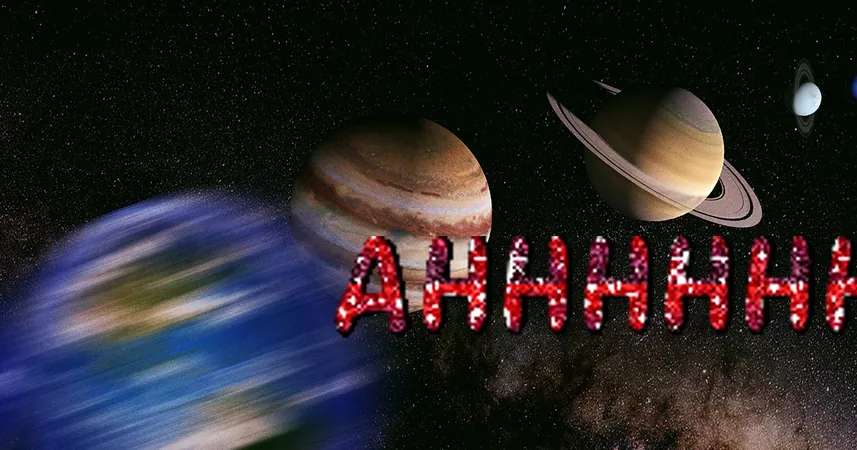
Is a Cosmic Catastrophe Looming? Scientists Warn of a Star That Could Send Earth Spiraling into Space!
2025-05-31
Author: Ming
Earth is often dubbed the "Goldilocks zone" of our solar system, where conditions are just right—neither too hot nor too cold—for life to flourish. But hold on! What if this fairytale takes a dark turn?
According to a startling new study published in the journal Icarus, scientists are warning that a passing star could disturb our comfortable orbit, potentially flinging Earth out into the cold, dark reaches of space. While this may sound like a sci-fi nightmare, it’s rooted in serious astronomical research.
The study’s lead author, Nathan Kaib from the Planetary Science Institute, emphasizes that our solar system is not an isolated island but rather a part of a dynamic universe. "Our simulations indicate that models which isolate the solar system can significantly underestimate how our giant planets’ orbits might change over time," he explained.
But just how likely is this cosmic upheaval? Kaib estimates there’s about a 5% chance—over the next five billion years—that a rogue star could pass within 100 astronomical units of our solar system. That’s roughly 100 times the distance between Earth and the Sun. If that happens, Mercury could be pushed into a highly elliptical orbit, possibly colliding with the Sun or Venus.
Such collisions could trigger a chain reaction, sending Venus or Mars careening toward Earth. Alternatively, a destabilized Earth might veer toward the gravitational pull of Jupiter, leading us into the abyss of interstellar space!
However, before you panic, Kaib reassures us: the odds of these dire scenarios unfolding are still quite low—only about 0.2%. Nevertheless, this is a staggering increase compared to previous estimates, highlighting our solar system's precarious balance.
Kaib’s previous research suggests that a star’s passage might have altered Earth’s orbit millions of years ago, potentially influencing historical climate changes. This revelation underscores the fragile equilibrium that governs our planetary neighborhood.
Planetary scientist Renu Malhotra from the University of Arizona, who was not involved in the study, voiced her concern: "It’s a little scary how vulnerable we may be to planetary chaos." Her sentiment encapsulates the unsettling reality of our cosmic existence.
So, while we cozy up in our Goldilocks zone, keep an eye on the skies—the universe has its surprises!


 Brasil (PT)
Brasil (PT)
 Canada (EN)
Canada (EN)
 Chile (ES)
Chile (ES)
 Česko (CS)
Česko (CS)
 대한민국 (KO)
대한민국 (KO)
 España (ES)
España (ES)
 France (FR)
France (FR)
 Hong Kong (EN)
Hong Kong (EN)
 Italia (IT)
Italia (IT)
 日本 (JA)
日本 (JA)
 Magyarország (HU)
Magyarország (HU)
 Norge (NO)
Norge (NO)
 Polska (PL)
Polska (PL)
 Schweiz (DE)
Schweiz (DE)
 Singapore (EN)
Singapore (EN)
 Sverige (SV)
Sverige (SV)
 Suomi (FI)
Suomi (FI)
 Türkiye (TR)
Türkiye (TR)
 الإمارات العربية المتحدة (AR)
الإمارات العربية المتحدة (AR)